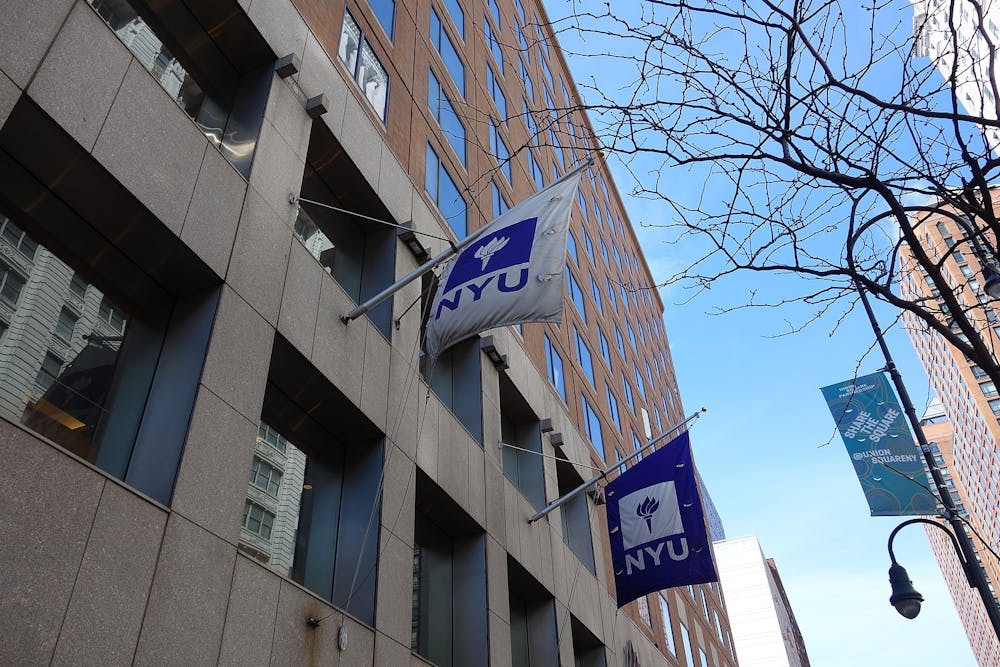New York University (NYU) has terminated the employment of University professor emeritus Maitland Jones Jr., who had taught at Princeton for four decades, The New York Times reported on Oct. 3. Jones’s firing followed a petition circulated among his students raising concerns regarding his grading practices.
At Princeton, Jones served as the David B. Jones Professor of Chemistry and was responsible for several landmark discoveries in the field of chemistry.
In a statement to The Daily Princetonian, NYU spokesperson John Beckman said that the school’s decision not to renew his contract was, in addition to the petition, informed by “a very high rate of student withdrawals,” poor course evaluations, and “multiple student complaints about his dismissiveness, unresponsiveness, condescension, and opacity about grading.”
“In short, he was hired to teach, and wasn't successful,” Beckerman said in the statement.
In an interview with the ‘Prince,’ Jones defended his teaching style and the difficulty level of his course.
Referring to a hypothetical untenured professor, Jones said, “If that person’s career exists at the peril of some disgruntled students writing to the deans, then he or she just can’t write real exams, can’t teach hard material — serious material.”
Jones also said that several of his students have lauded the long-term benefits of his course.
“I'm getting a million emails from former students. And one of the overarching themes is gratitude for allowing them to work through a difficult course. And if you dumb it down too far, you take that away from them,” Jones said.

The ‘Prince’ also spoke to former University students about their experiences taking Jones’s courses.
“I'm sure there were a lot of us back in the fall of 1984 that would have signed such a petition,” Mark Taylor ’88 said. “But if we had succeeded in getting the difficulty level of the class watered down, eventually we would have been disappointed with the results. I think it's better to stick with a challenge.”
According to the Times, 82 out of the 350 students in Jones’s organic chemistry class at NYU signed a petition to the university’s dean, arguing that their low test scores proved the class was too difficult. Jones said he was not aware of the petition at the time that it was submitted to the dean.
Several NYU students who took Jones’s course in recent years spoke on the matter.

Ella Kim, a senior at NYU who took organic chemistry with Jones two years ago, told the ‘Prince’ that she “definitely would have signed a petition and I definitely think it was a good thing that he was fired.”
“I think he was uniquely bad in the way that he didn't really seem to care about students grasping the information, or that he was frustrated in the way that they didn't understand the way he was teaching,” she said.
Grace Pascal, an NYU graduate who took Jones’s class, told NYU’s student newspaper, Washington Square News (WSN), that Jones “was not receptive to questions, and I didn’t want to open myself up for him to be rude to me.”
In the last few years, Jones said he noticed a change in the way that students approached his admittedly difficult class. He told the ‘Prince’ that many students skipped lectures and the number of misread questions on tests had increased.
“I can stand up there in front of the class and count the house, and when you get to the middle of the semester, it’s below 50 percent. And I saw that if you have recorded lectures, as we had to do during COVID times, you, of course, get a headcount from the Zoom app,” Jones said. “It’s discouraging to see how few people actually listen to those recorded lectures.”
“Nobody went to office hours. We had them every week, [and] we’d get between three and eight people. Those folks at office hours were not the ones who needed to be there. They were the people getting hundreds on the exams,” Jones continued.
Jones argued that the course is often challenging for students, attributing the semester’s unusually poor performances to the adverse effects of the pandemic on academic achievement.
“In the last two years, [test scores] fell off a cliff,” he wrote in a grievance to NYU, according to the Times.
To Steve Bernasek, a former chemistry professor at the University, the way in which NYU moved to fire his former colleague was “cowardly.”
“[T]hey had every right to [not extend his contract] because it’s renewable each year,” Bernasek said in an interview with the ‘Prince.’ “They’re not terminating him. They’re just not renewing his contract for another year. But it’s kind of an administratively cowardly way to do this.”
Jones said he wished students had come to him with their complaints personally, or that the dean should have had “disputing parties” get together and work it out. He pointed to a smaller petition that was brought directly to him the year prior as an appropriate way for students to voice their complaints. Following that petition, he said he “made some adjustments.”
The news has garnered national attention, with many publications covering the saga. The Twittersphere also exploded with commentary on the news.
“He didn’t make it easy on us,” said Luis Javier Castro ’88, a former student of Jones who was on the football team. Castro recounted a story of when he asked Jones to excuse him from a lab for a game.
“He just looked me straight in the face and was like, ‘No, you’re not excused. You are not here to play football. That’s not what your priority is,’” said Castro. “He was tough but fair.”
Speaking on his colleague’s approach to teaching, Erik Sorensen, a Princeton professor who worked with Jones, said he finds fault with the NYU students’ complaints.
“Maitland Jones is one of organic chemistry’s finest teachers. He possesses the ability to inspire students who have an affinity for the subject,” Sorensen wrote in a statement to the ‘Prince.’
The University declined to comment. Dr. Jones retains his emeritus status, which is approved by the University Board of Trustees.
Former student Dr. Evan Tobin ’88 described Jones as an “unbelievable lecturer” in an interview with the ‘Prince.’
His class was “really hard and it was really great,” said Tobin, noting that Jones’s organic chemistry class was one of his favorite classes at Princeton.
“He was a purist. This is a subject that he devoted his life to, and he had the bar very high and he expected people to meet it,” Stephanie Morris ’88 explained.
Organic chemistry is an advanced course taken by chemistry majors and a requirement for students who wish to apply to medical school, many of whom do not take many other chemistry courses. Some students felt that Jones’s particularly challenging class was geared towards the top of the class.
Jones said he believes it is necessary for organic chemistry to be a difficult class.
“You have to make sure there’s room for the really unusually abled kids to show themselves and to be stretched. Writing an exam where everybody’s getting 85 to 95 — it’s just going to bump those people up against 100 and they’re not going to learn from it,” he said.
When NYU students’ average dropped below the 65 percent that is customary for Jones’s class, the school did not renew his contract. Jones has filed a grievance against the school for wrongful termination.
The ‘Prince’ asked Jones if, given the chance, he would have approached the situation differently at NYU: “I could have made the course easier. I was pressured to do that,” Jones continued. “But I wouldn’t do it.”
Jones, who is 84 years old, told the Times he was not likely to teach for much longer. But the principle set by his firing has worried some.
“I don’t want my job back. I’m done with that,” Jones said. “But I guess all I would say is that I would like the rules to be changed at NYU. So this can’t happen to somebody else.”
To Morris, one of Jones’s former students, the firing raised a nuanced question about the pedagogy of organic chemistry.
“Perhaps this is not the man who should be teaching organic chemistry to people who don’t want to be chemists,” Morris said. “That doesn’t mean he should be fired though.”
Julian Hartman-Sigall is a news and podcast contributor for the ‘Prince.’ He can be reached on Twitter @Julian_h_s, on Instagram @julianhartman, or jh8991@princeton.edu.








